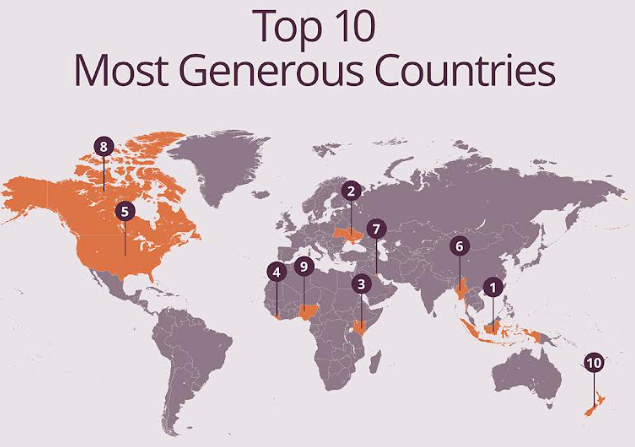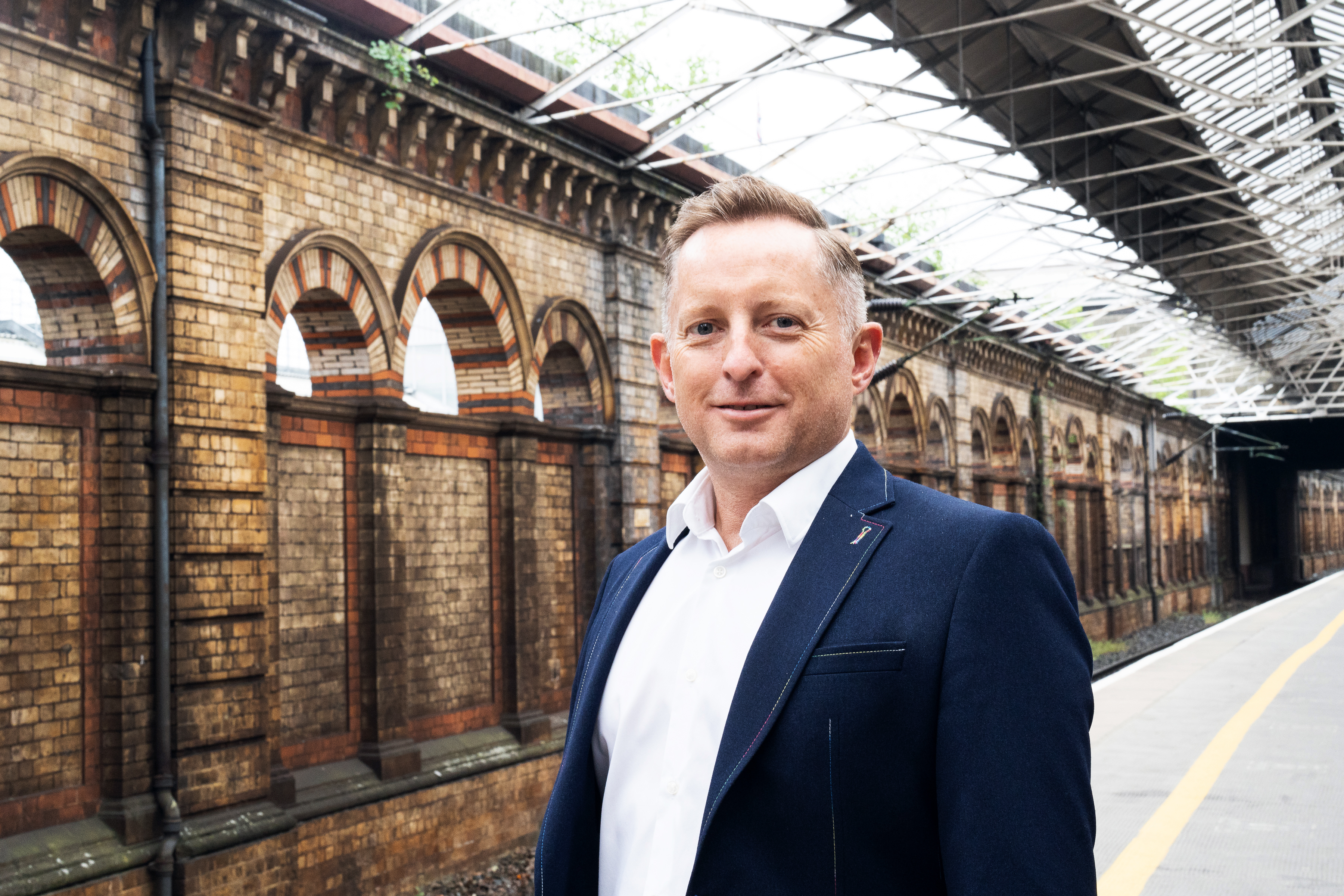Rob Capener, CEO of Railway Children, talks through his week visiting the charity’s Tanzania programme where they support street-connected children and young people.
_________________________________________________________________
Day 1
My week starts with a 5am flight to Mwanza where we do a lot of our outreach work with children who live and work on the street. After meeting with the Executive Director at Railway Children Africa, we go to visit our child support desk at one of the city’s largest bus terminals.
Drawing on the success of our child-friendly stations in India, the support desk was set up in collaboration with the Tanzanian government’s child welfare department, with the aim of reaching vulnerable children in transit before they come to harm. Together, we have developed a whole network of safeguarding champions around the busy transport terminal, who are all on the lookout for vulnerable children. It’s impressive seeing the porters, street vendors and police, not only helping us but building genuine trust with young people.
While I’m there, a young boy is brought into us by local police who found him wandering the streets alone and hungry. He had been sent to work on a farm to send money back home to his parents but was unfed, beaten and ran away. Thankfully, he’s now safe and will be looked after by a temporary foster carer before being reunited with his family.
A big part of our work in Tanzania over the last decade has focused on changing perceptions of street-connected children as troublemakers, so it’s great to hear how the police are looking out for them and referring them to the support desk. I head back to my hotel feeling inspired by the collaborative efforts of our outreach workers, local authorities and community to help keep young people safe.
Day 2
My day begins with another early start to visit our Youth Association programmes in Mwanza. These groups were set up to bring some of our most detached and street-entrenched young people together, to equip them with skills to become self-reliant and improve their standard of living. An important part of Railway Children’s mission is to ensure that children’s voices and experiences are at the heart of our work, which is why having these youth-led interventions is so valuable.
In the morning, I meet a group of girls and young women who are using the creative skills they’ve learnt through the Youth Association programme to make and sell their own clothing and hygiene products. They’ve elected a group leader and secretary, and I’m impressed by how they’ve built a sustainable business where they invest their earnings back into stock. Most importantly, they are a truly empowered group who take their responsibilities to one another seriously and I am heartened by their unity and the strength it gives them to be part of something.
Later, I spend time with a group of male teenagers who discuss leadership qualities, acceptable behaviours and the values they want to uphold, both as a group and as individuals contributing to their community. These boys have experienced serious abuse and trauma and while they continue to live on the streets, it is clear that their involvement in this group is having a profound impact on their lives. I’ve witnessed my fair share of leadership coaching sessions over the years but this session with our youth worker is an inspiration and the quality of their reflections is profound.
Day 3
At Railway Children, we believe that a supportive family environment is the best place for a child to thrive, and as well as supporting young people, we also work with parents and caregivers. Today I’m meeting one of our ACT parent groups in Mwanza, where they’re learning skills and knowledge to provide a nurturing home. I wasn’t sure what to expect on my arrival, but it is clear the sessions are having huge value as we support them to break the generational cycles of parental abuse and corporal punishment they all experienced as children. Around the room, they talk of how their children remain safe at home. They also tell me how they meet up each week to put savings into a joint account to prop each other up when times get hard.
In the afternoon, I meet a few people who are providing temporary foster care for children from the streets to avoid being placed into childcare institutes – we call them ‘fit persons’. One man shows me his personal record of every child he has looked after (it’s well over 100!) and says that even when they had a bad experience with a child, it never stopped him from wanting to provide a loving home.
Each person I talk with has their own inspiring story to tell, and although many of them have their own family to care for, they’re committed to providing a safe family environment for children who need it the most.
Day 4
I always feel lucky to spend time with our project workers as it really brings to life the work we do. This morning I’m joining Joyce – who has worked with Railway Children Africa for many years – on one of her family intervention visits.
She’s working with a mother and her children who had been left in poverty by the father who had abandoned them. The mother had struggled to feed her children, and the youngest son had run away multiple times. He was supported to be reunited with his family and return to school, but unfortunately, he was bullied by one of the teachers who called him ‘street boy’. After working with the school to stop this situation, Joyce is now holding therapeutic sessions with the family to help them work through their issues.
During the session I’m attending, Joyce asks the family to name two things they appreciate each other for. I am privileged to witness one of the most emotional exchanges I’ve ever seen. The outpouring of love the mother and children have for each other is heartwarming but more importantly, the space Joyce creates for them to process their grief is so powerful and essential to their relationship. It will be an experience I’ll never forget.
Day 5
The Magafuli bus terminal in Dar es Salaam is huge and incredibly chaotic – very similar to the Indian railway stations I’ve visited over the years. It’s a hive of activity, with hundreds of people and a natural magnet for the thousands of vulnerable children who are escaping their pasts and searching for a future. Around 3,000 buses pass through the station every single day. We have outreach workers in and around the station, but the footfall is so high at peak times, it’s impossible for them to have eyes and ears everywhere. The relationships we’ve built with our community safeguarding champions are crucial to expanding our safety net around the station and when I arrive at the child support desk, a session is taking place with a young boy who is reluctant to provide details of his family or situation. The collaborative and respectful relationship between our staff and the child welfare officers is a significant step forward since my last visit and I am encouraged by the realisation that by working together, we can protect so many more children.
Later that morning I visit another Youth Association – this one at the start of their journey together. I am shocked to hear their stories as I learn that almost all of them arrived in the city via the bus terminal. They have all travelled hundreds of miles from across Tanzania and even over the international borders from Kenya and Burundi. What is even more shocking is that some of them hid under the chassis of the buses to avoid being discovered. The likelihood of finding their families is slim and the Youth Association group gives them a chance to learn skills, protect each other and in time, earn a livelihood.
During my early months as CEO, I have focused heavily on our values, culture and behaviours to ensure we have an environment that encourages creativity and innovation and where everyone feels able to contribute to the organisation. I arrived in Tanzania wanting to bring our values to life – ensuring that our beliefs are much more than something we just put up on the wall. At the end of my trip, this job was made easy for me. The work our teams here are doing is the absolute epitome of our values and everything we stand for at Railway Children. The outstanding quality of the work, our respected and trusted relationships with government officials and the leadership I saw at every level is a credit to our people in Tanzania.
I arrived in Tanzania wanting to inspire but left as the inspired.
Latest News
-
Youth homelessness charity forced to turn away young people due to demand surge
-
Funder offers charities ‘social change’ grants of up to £50,000 to boost training
-
Navy charity handed £368,500 to support submariners’ families
-
Former football charity chief to lead sports and culture charity
-
From comics to crockery: the best places for charity shop sales revealed
-
Three arrests made amid ‘large-scale theft' of charity clothes donations
Charity Times video Q&A: In conversation with Hilda Hayo, CEO of Dementia UK
Charity Times editor, Lauren Weymouth, is joined by Dementia UK CEO, Hilda Hayo to discuss why the charity receives such high workplace satisfaction results, what a positive working culture looks like and the importance of lived experience among staff. The pair talk about challenges facing the charity, the impact felt by the pandemic and how it's striving to overcome obstacles and continue to be a highly impactful organisation for anybody affected by dementia.
Charity Times Awards 2023
Mitigating risk and reducing claims

The cost-of-living crisis is impacting charities in a number of ways, including the risks they take. Endsleigh Insurance’s* senior risk management consultant Scott Crichton joins Charity Times to discuss the ramifications of prioritising certain types of risk over others, the financial implications risk can have if not managed properly, and tips for charities to help manage those risks.
* Coming soon… Howden, the new name for Endsleigh.
* Coming soon… Howden, the new name for Endsleigh.
Better Society

© 2021 Perspective Publishing Privacy & Cookies











Recent Stories